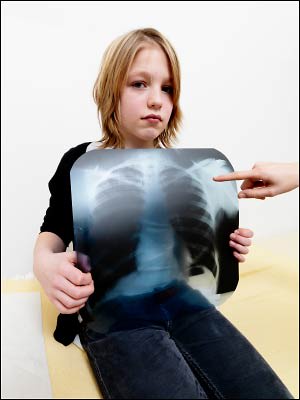My worst betrayal was not by any person or place, but by my own body for at times I had been negligent in caring for myself. At a young age, I learned to enjoy junk foods; I ate and gained weight. Children in the neighborhood and at school ridiculed me. Frequently I was not chosen in games and when I was, I was chosen last. I felt “left out” and again turned to food to comfort myself.
I have lived my life with all of its ups and downs and numerous experiences. As is often the case when one gets older, it is hard to change, and so it was with me. Many years have passed, and my body has betrayed me in more ways than one. I am a baalat-teshuva; I have been married, had a child, and been divorced. I am now forty-four years old, and I am familiar with cervical cancer.
As a divorcee I didn’t think it necessary to go for annual examinations, although cervical cancer is one of the easiest cancers to detect and treat if caught early. Even when I began experiencing unusual symptoms, I balked at the price of a pap smear. When I finally agreed to testing, and results showed pre-cancer of the cervix, I chose to be aggressive. Being aggressive meant major surgery and although many of my friends were shocked and against such a radical move, I felt a certain intuition guiding me. This decision turned out to be the right choice, and in doing so I saved myself; during the course of surgery other life threatening conditions were discovered.
As Jews we are commanded by the Torah “to guard our health”, yet many of us are lax or negligent. We eat poorly, don’t exercise properly, and we don’t listen to our bodies. We may have discomfort or pain, but we are too busy and preoccupied with our lives to see a doctor. We avoid medical attention because of our jobs, our children, the time that is involved, the money, or just inhibitions due to modesty (tzniyut). Jews are not alone. The Amish, the Quakers and the Muslims all observe certain aspects of modesty.
It is a commandment (mitzvah) in the Torah to take proper care of our bodies. The body is likened to the Temple (Beit Ha-Mikdash) and as such it should be treated with great respect. Just as a garden needs sunshine, a car needs oil and an engine requires proper maintenance, so too, our bodies need proper nourishment –water for hydration and nutritional foods such as fruits and vegetables along with protein and other vitamins and minerals. From time to time we need to see a physician for routine examination, tests, and other procedures as necessary.
Young adults (both male and female) who are developing should be made aware of their bodies and how to examine themselves. This is especially important since cancer of the breast or testes can occur as early as the teenage years. Aspects of modesty should always be our guideline to living, but so is taking care of our bodies. If one notices anything out of the ordinary, a medical opinion should be obtained as soon as possible.
For women during the reproductive years, problems can arise that aren’t necessarily painful. Especially with matters that are taught to be kept private, it is important to be aware of when something isn’t normal and make the effort to consult a physician. Treatment can be simple or additional diagnostics may be required. Preliminary tests for women include mammograms, ultrasound, pelvic examinations and/or biopsies. Because symptoms of different disorders or diseases can seemingly overlap, it is important to speak with the doctor after results are obtained and seek a second opinion when in doubt. Early detection and regular testing offer the best prevention against advanced disease. ALL women need to be cautious and conscientious in seeing their physicians annually to obtain pap smears and mammograms when age appropriate.
Based on my experiences and research, I now regret my previous blasé attitude towards my health and responsibility to myself. I would not want any others to experience the guilt, fears and anxiety that I suffered. I had no one to “blame” but myself in that I delayed my own medical care. I learned many years ago when I first became a baalat teshuva that everything that happens to us is for a purpose-even if we do not understand it-and that Hashem is in charge of the world. I have faith that my life can/will/does go on no matter what happens to my body.
If you have unusual symptoms, please do not be afraid to seek medical attention! Be guided by your intuition for it may be that your body or Hashem is trying to tell you something.
Mikimi Steinberg has agreed to share personal experiences in an effort to promote greater health care awareness. She was born in Boston, grew up in Atlanta and made aliya at age 16. She has been living in Tzfat since 1982, is a community volunteer and has a passion for writing.
The words of this author reflect his/her own opinions and do not necessarily represent the official position of the Orthodox Union.
